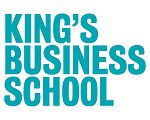 To drive sustainability in the hospitality industry, the first-ever executive education programme focused on Environmental, Social, and Governance (ESG) practices is being rolled out, courtesy of King’s Business School and the Energy and Environment Alliance (EEA). This unique program, crafted with expert insights from over 40 top-notch industry leaders, is set to revolutionize the sustainability practices of hospitality businesses worldwide.
To drive sustainability in the hospitality industry, the first-ever executive education programme focused on Environmental, Social, and Governance (ESG) practices is being rolled out, courtesy of King’s Business School and the Energy and Environment Alliance (EEA). This unique program, crafted with expert insights from over 40 top-notch industry leaders, is set to revolutionize the sustainability practices of hospitality businesses worldwide.
The ESG executive program was born from pressing global issues and industry necessities. The pandemic-induced crisis, the recent surge in energy prices, and the newly-introduced IFRS® Sustainability Disclosure Standards were the catalysts that prompted the program’s conception. This comes at a crucial time as nations worldwide have pledged to attain net-zero CO2 emissions by 2050, putting businesses, including the hospitality sector, at the forefront of this green transition.
The hospitality sector, particularly hotels and lodging, is infamously renowned for being the least energy and water-efficient among commercial buildings, according to the Urban Land Institute. The research conducted by EEA and King’s Business School underscores the daunting task industry leaders face in reducing dependency on fossil fuels.
As Ufi Ibrahim, Chief Executive of the EEA, explicated, “In the recent past, due to price hikes and the COVID-19 pandemic, energy usage and costs have become prominent issues. Many hotels, despite zero occupancy during the pandemic, were compelled to maintain up to 60% of their usual energy consumption to prevent dampness and sustain hygiene. A significant number of investors believe that at least half of the measures to enhance energy performance will require capital expenditure, necessitating an exploration of green finance.”
The pandemic and energy-price-induced inflation have transformed the hospitality sector’s investment landscape and highlighted the industry’s resilience to online work and shopping trends. As such, the dynamic pricing models of the industry have proven to be effective inflation hedges.
“Hospitality is becoming a mainstream asset poised to attract new investments and financing, provided the industry can credibly persuade investors about its long-term appeal. This appeal is increasingly tied to ESG credentials,” added Ibrahim.
The newly unveiled ESG programme, slated to kick off in September 2023, is designed to cater to the needs of the hospitality industry’s leadership. It aims to shed light on the current and planned regulations and ESG reporting requirements, specifically focusing on the sector’s social impact and climate change mitigation. Additionally, it will guide industry leaders on green financing options and strategies to align consumer behaviour with sustainable outcomes through effective marketing tactics.
This unique educational program will foster a community of engaged, proactive leaders armed with comprehensive knowledge and ambition to drive sustainable business practices across the sector, states Giana Eckhardt, Vice Dean for Engagement and Executive Education at King’s Business School.
The fruitful partnership between the King’s Business School and the EEA will expand to include a specialized ESG course for general managers and hotel operation teams, marking a new chapter in the hospitality industry’s sustainable transformation.
This innovative program and partnership embody a significant global impact, offering a compelling and immediate opportunity for change. It promises to usher in a new era of sustainability in the hospitality industry, bolstering its resilience and attractiveness to potential investors.
Find out more by visiting these sites: Energy and Environment Alliance Executive Education or King’s Business School Executive Education.
Written by: Supaporn Pholrach (Joom)
===================================
















